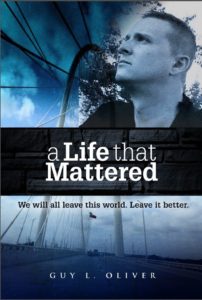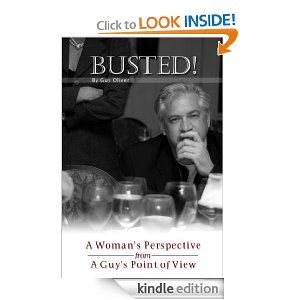I’m a fossil. I turned 65 this year. And, at one time, I thought that if I ever had the privilege of crossing that particular threshold, I would view myself as old, used up, and past my prime. Given the reality that the median age of the U.S. is 38.5 years, it’s fair to say that, comparatively speaking, I am old. It’s also fair to say, my knees are used up and that my right rotator cuff appears to be failing, which suggests I am past my physical prime and, in a sense, used up. I expected all that.
What I didn’t expect was that my current station of senior existence would be, in a strange way, liberating. For one thing, my career is over. I now know the awful truth that I will never be a fixture of corporate management with scores of people in my charge. I’ll never have a corner office with a view of a metropolitan skyline. No; for the remainder of my tenure in a W2 world, I will sit quietly in my home office and write. And people will come to me and ask me technical questions and questions about how to organize information, and I will teach them how to understand new technologies and how to develop libraries of documentation explaining how to use that technology and why they should care about it.
But mostly I will write. Ongoing, I will write thousands of Web pages, most of which will go unread but I will write them anyway, because it’s my calling and it’s what I’m paid to do. But what that also means is that I no longer have a career to protect or promote. And with no possibility of upward mobility, I have the luxury of telling my colleagues exactly what I think.
Simply put, I don’t care, and that state of mind has infected my relationship with my social contemporaries as well.
Which brings me to what has been on my mind lately: The incarnation of womanhood.
And why, you might ask, is womanhood on my mind? Because, somehow, this relatively simple but defining characteristic of the human experience has become inexplicably controversial.
Now, don’t turn me off just yet. If you do, you’ll miss the punchline.
Last week, we celebrated Father’s Day and Father’s Day makes me happy. The idea goes something like this:
As a man, you make love to a beautiful creature known as a woman, and the outcome is that you conceive a child and, what feels like an eternity later, she gives birth to someone who is a unique individual but is also, somehow, very much like you both. And you spend the next 20 years providing for, loving, and protecting that person you and that magnificent creature, called Woman, created together.
Then you spend the next 60 years, watching that individual become themselves. And with every milestone you cheer them on, giddy with the accomplishment of having created someone equally beautiful to the woman who gave that person life.
And once a year, that person stops what they’re doing, picks up the phone, and calls you. And when you answer, you hear that voice. The voice that at one time couldn’t form words and took a child’s form. And the voice says, “Happy Father’s Day, daddy.”
That’s the romantic version and it bears very little resemblance to my experience last Sunday. Last Sunday, I made the mistake of checking in on social media to find no end to the Happy Father’s Day memes addressed to single moms. I’m sure you blew right past that commentary, so let me offer it again with a finer point: I was inundated with e-posters sporting images of women with captions such as
“Happy Father’s day to all the single moms out there pulling double duty.”
Let me just set the record straight: Single moms are not fathers. They are, as the title suggests, single mothers.
A father is a specific thing that begins with contributing half of a child’s DNA and ends with raising that child to adulthood. As a single mom, the fact that your partner didn’t finish the job doesn’t make you a dad. It makes you a mom without a partner.
Right now you should be asking yourself several rhetorical questions. Questions like “Why do you care whether someone wishes a single mom Happy Father’s Day?” “Single moms work really hard. I think it’s a sweet sentiment. Why would you begrudge her a Happy Father’s Day wish?” The answer is, quite simply, she’s a mom, not a dad. And if dad really is missing, then mom and their children suffer. That doesn’t make her a dad. It makes her a single mom.
So let me just break down my notion of what a woman is and why I think it’s important.
To begin with, Woman is a title. And it comprises one of three interrelated titles that, in my opinion, elevates the individual holding that title to higher esteem than her human counterpart, better known as Man. In descending order:
- Woman: The pinnacle of God’s creation. There’s a reason that, as literature, Genesis mentions Woman in the creation story last. In the literature, God creates everything beginning with lowest things first and working His way up. First the infrastructure, then lower life forms, then higher life forms, and then it appears to end with the creation of Man. And, at that point, Man was, briefly, the pinnacle of God’s Creation, formed in the image of God.
Then, after a contemplative moment of rest, God realized that Creation was not complete and perfected it by crafting Woman, who is like Man—but different from Man and necessary to complete Creation. And it wasn’t until He created the crowning jewel of Woman that He could truly lay the creative effect to rest. - Wife: Partner to Man by virtue of a sacred bond. If you’re a man and a woman agrees to partner with you, congratulations; you’ve hit the mother lode. There is no greater find on the Planet. As such, your obligation is to be a true partner to her—as your equal—giving first to her what you offer the world more generally as a man.
She is your moral compass and as such, sets the moral tone in the space she holds, which you hold with her. Her job is to light the way of your path together and your job is to ensure that the two of you find a place that enables you both to leave the world better than you found it. - Mother: Giver of life. Man animates Life—but the inception of Life comes from Woman. Both are necessary, but Life is resident within Woman from the beginning, which is what places Woman in high esteem.
So here’s the punchline: The two of us are (or should be) partners; different but equal and both equally important.
We, Man and Woman, need each other because of our differences, not in spite of them—and to suggest that we are interchangeable, diminishes us both.
That’s what I think, anyway.



